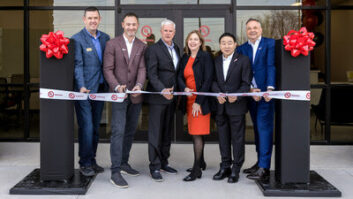New York – Electric Fuel, makers of Instant Power batteries and cell chargers for cellphones and PDAs, has discontinued its retail consumer battery products operation, as of the third quarter of 2002.
Electric Fuel, although it is halting sales of its refuelable zinc-air fuel-cell products in traditional retail outlets, said it will continue to offer retail battery sales on-line.
‘The business didn’t post much revenue in comparison to assembly lines,’ said Conrad Mir, Electric Fuel’s managing director of investment relations, when comparing retail sales to its commercial enterprises. The company will shift its bread and butter battery technology to defense and security products, military applications and electric vehicles such as buses.
‘We are planning to sell through our current inventory,’ said Mir about retail distribution, ‘then we will reposition our product lines as to the amount of output,’ which he said would be far less for on-line sales.
Electric Fuel, which reported a 416 percent revenue increase in the third quarter, ending Sept. 30, to $3.3 million, from $632,344 in the same quarter in 2001, said gross profit climbed to $1.6 million in the third quarter, from $43,326 in the previous three months.
The company recorded a net loss of $9.6 million for the third quarter, compared with a net loss of $4.4 million in the year-ago three months.
Electric Fuel reported a third-quarter net loss from discontinued operations, relating to its consumer battery products, of $8.7 million, up 140 percent from the $3.6 million net loss from discontinued operations recorded in the same three months in 2001.
Included in the net loss for the third quarter is a one-time, pretax charge of about $6.9 million, reflecting a write-down of inventory and fixed assets, as well as costs associated with a workforce reduction, related to the discontinued operations of retail battery sales.
In putting all its efforts toward its defense and security business, Electric Fuel said it has arrested its continuing losses from its expense-driven consumer battery business – namely advertising costs associated with retail distribution. The company said it has increased gross revenue, while cutting expense levels and improved gross margin to almost 50 percent.
Electric Fuel, which entered the retail battery business in 1999, with its first full year of sales in 2000, has been working with its proprietary technology for 20 years. The U.S. company has been public since 1993.













